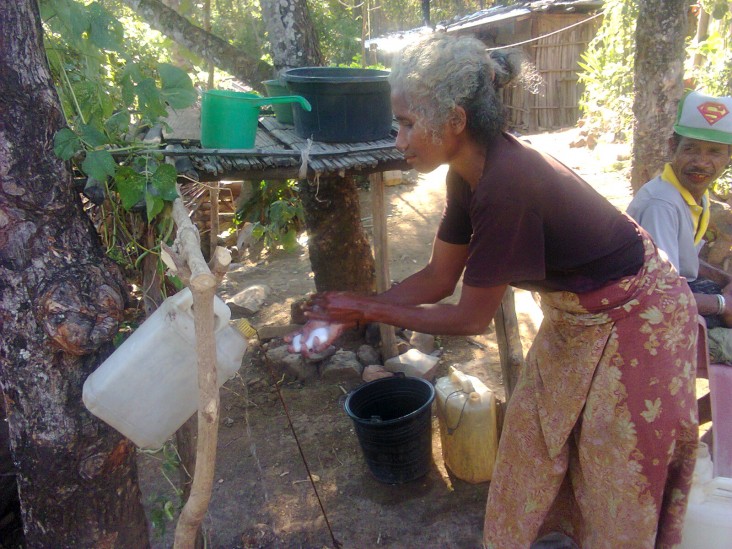|
Project Purpose: To improve the health status and quality of life of Timorese citizens by increasing the availability and use of clean, safe water; improving sanitation facilities, and enhancing the uptake of improved hygiene practices. |
Location: Oecusse-Ambeno Administrative Region |
|
Partner: World Neighbors, Inc. (WN) |
Project Duration: May 2015 – May 2018 |
|
Cooperative Agreement: $1.6 million |
|
|
Chief of Party: Edd Wright Regional Director for Southeast Asia Bali, Indonesia Email: ewright@wn.org |
USAID Contact Person: Flavia A. da Silva Project Management Specialist Email: fdasilva@usaid.gov |
Background:
The region of Oecusse-Ambeno, on the western side of Timor Island, is characterized by low food production levels, an absence of adequate clean water supplies, and isolation from the rest of the country. As is typical of the uplands of Timor-Leste, the ecology is fragile and bears the negative impact of slash-and-burn agriculture, which also negatively impacts already inadequate water resources.

Geographically, communities are mostly located in remote, uphill locations, where road infrastructure is very poor and access during the wet season is extremely difficult. The lack of clean water sources, sanitation, and hygienic practices in the area leads to health problems. Many of the water sources are contaminated, resulting in a host of water-borne diseases such as diarrhea, which particularly affect the elderly and children under five years of age.
Summary:
USAID and World Neighbors are working with the Government of Oecusse-Ambeno to increase access to safe and clean water and improve sanitation and hygiene practices in Oecusse-Ambeno through the Increasing Community Resilience to Oecusse Project. The project’s key outputs will include: protecting and conserving community water sources through micro-watershed technology; improving sanitation and hygiene practices in villages and schools through Community Led Total Sanitation and other appropriate interventions; and building the capacity of local nongovernmental and community-based organizations to sustain the gains made. Establishing savings and credit groups will increase community income and the ability to provide funds to maintain water sources.
While the project will not construct any physical structures, it will promote sustainable practices in water and environmental conservation through the use of micro-watershed management techniques and community-based natural resource management. This will entail protection of watersheds and water resources, facilitating enactment of local laws on sustainable management of water sources, tree planting, soil conservation, and improving water productivity through sustainable agricultural practices. The project will also provide training for local communities in community natural resource management to enable them to plan, implement and maintain sustainable watershed management practices.
To improve sanitation practices, the program will apply a Community Led Total Sanitation approach to trigger community’s awareness to construct and use their own latrines. The project will also conduct hygiene promotion with communities and schools within the coverage area.








Comment
Make a general inquiry or suggest an improvement.